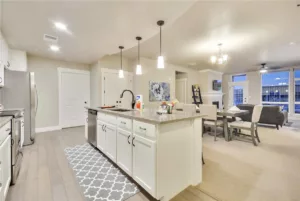As we embark on a new year, the real estate industry finds itself at the forefront of transformative trends. Beyond the traditional considerations of location and amenities, prospective homeowners, renters, investors, and industry professionals are navigating a landscape shaped by sustainability, technological innovations, affordability challenges, and the evolving dynamics of remote work. Here are four top real estate forecasts and trends in 2024, offering insights into the key areas that will influence the industry in the coming year.
1. Sustainability as a Selling Point
In 2024, sustainability takes center stage in the real estate market. Properties with eco-friendly features, energy-efficient designs, and green technologies are becoming increasingly attractive to homebuyers and renters. People are seeking properties where connectivity and sustainability go hand in hand, creating homes that are both intelligent and eco-friendly. Notably, the integration of smart home technologies is a key component of sustainable living. From thermostats that learn and adapt to individual preferences to lighting systems that optimize energy consumption, these technologies enhance the overall efficiency of a home.

Sustainability is not just limited to the features within a home—it extends to the processes of construction and development as well. Builders and developers are adopting sustainable practices that prioritize environmental responsibility. Processes such as green roofing and incorporating recycled materials are a clear indicator that the industry is actively seeking ways to meet the growing demand for eco-conscious construction methods.
2. The Rise of AI
In 2023, we began to witness the power of Artificial Intelligence (AI) in various aspects of real estate transactions, such as property valuations and personalized property recommendations. This will continue into 2024 as AI-powered tools are streamlining processes and enhancing the overall efficiency of the market. Expect to see more AI technologies being used to compare sales and neighborhood trends, outline macroeconomic indicators, and provide more nuanced and precise valuations of real estate assets.

The buying and renting process is also evolving with the integration of virtual tours and AI-driven customer interactions. Prospective buyers or tenants can explore properties remotely via immersive walkthroughs, allowing the user to see the property in as much detail as possible. As per a report from Realestate.com, virtual tours increased online interactions by 600% and per agent calls by 200%.
Additionally, homebuyers and renters are increasingly seeking smart home features and automation systems for their own convenience. A large area of demand is security systems to add an extra layer of safety to homes. Facial recognition and smart surveillance systems are becoming standard features when positioning a home as a desirable unit for potential buyers or tenants. While it might be a challenge for independent property owners managing their own rental to keep up with the pace of change in technology, it’s much easier for a corporation like AvenueWest to adopt and implement these changes.
3. Questions Surrounding Housing Affordability
Experts are expecting 2024 to offer a slightly more optimistic outlook for homebuyers in specific regions. While home prices may remain elevated in certain markets, industry experts anticipate softened prices in other areas of the country. According to a new report from Realtor.com, price drops are anticipated in 37 American metro areas; 14 of those predict at least a 4% decrease. The top 3 cities expected to become more affordable this year are: Austin,Texas (-12.2%), St. Louis (-11.7%), and Spokane, Washington (-10.2%). See the whole list here.
Despite the hopeful signs, economists acknowledge that affordability challenges will persist throughout 2024. Pent-up demand and low housing inventory are expected to create upward pressure on home prices. This, combined with elevated mortgage rates, raises questions about the necessary conditions for a robust housing recovery. To achieve this, industry experts predict that multiple conditions must unfold:
1) An increase in home inventories to alleviate supply/demand pressure
2) Gradual interest rate reductions
3) A return to “normal” mortgage rates in the upper 4% to lower 5% range.
In a recently published Forbes article, Vice President of mortgage website HSH.com, Keith Gumbinger, believes that it could be a while before these conditions are met, leaving some uncertainty surrounding housing affordability in the long run.
4. Higher Office Vacancy Rates
Remote work continues to shape the traditional office landscape, even 2 years after the height of the pandemic. As businesses embrace flexible work arrangements, office vacancy rates are on the rise. In fact, industry professionals are acknowledging that the real estate sector likely will not return to pre-pandemic norms.

As businesses re-evaluate office space needs, the shift towards flexible work arrangements is opening new avenues for corporate stays to play a pivotal role in meeting the needs of professionals. Corporate rentals are a great option for business owners and employees who are relocating for work and need an environment that encourages productivity and comfort. With the flexibility, cost-effectiveness, and personalized services that many employees demand, corporate housing is emerging as a viable and attractive alternative for businesses navigating the uncertainties of remote work.
If you’re evaluating your real estate investment portfolio to see how you can help meet the rising demand for corporate housing, we’re here to help. Reach out to us today. Conversations are always free.

